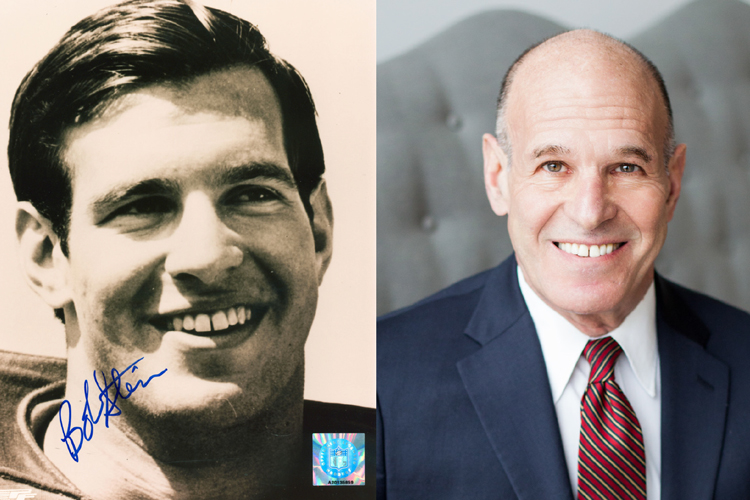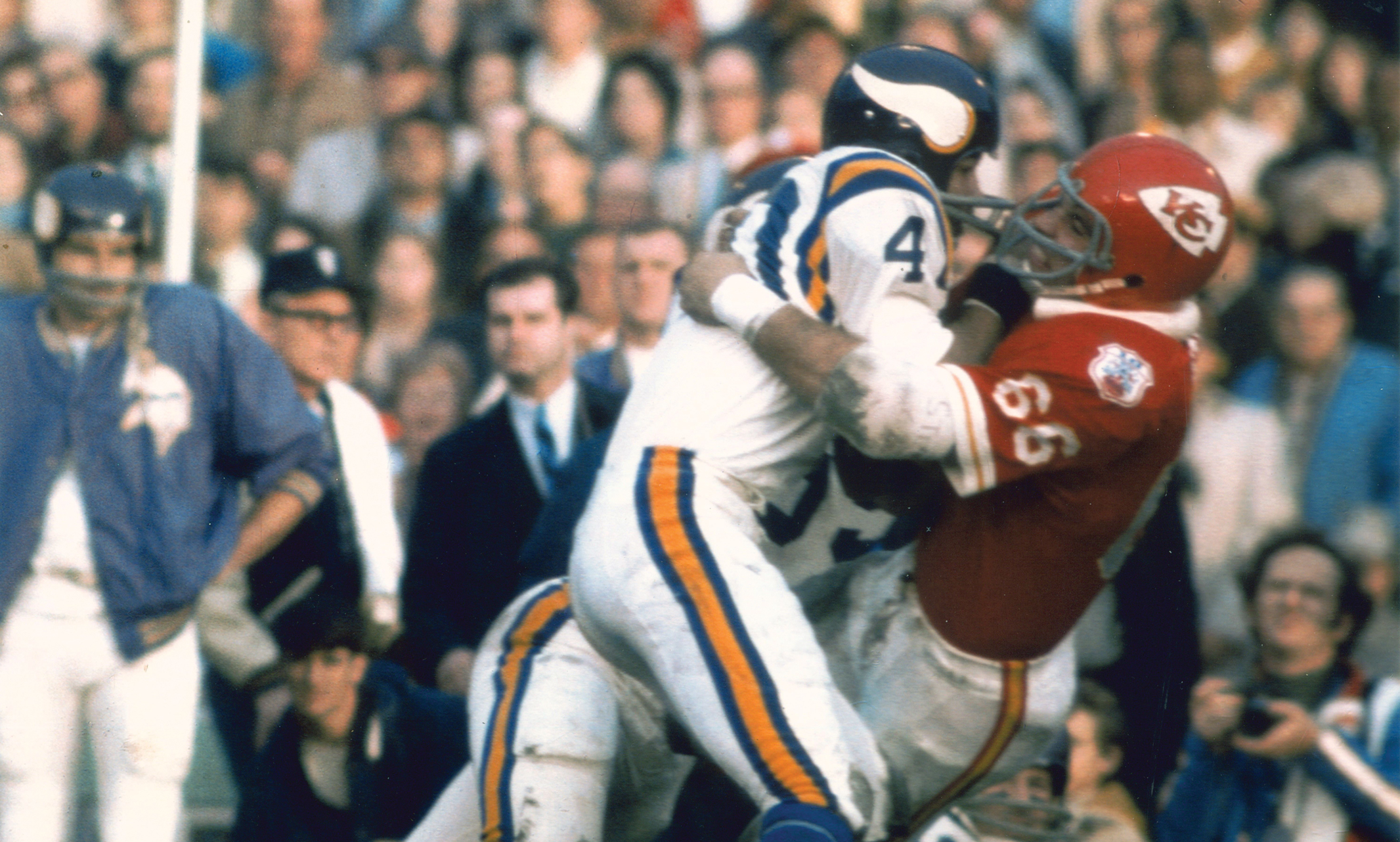While a full-time law student at UMKC, Bob Stein (J.D. ’73) had to split his time with another major endeavor: playing professional football with the Kansas City Chiefs.
In 1970, the 21-year-old Stein became the youngest ever player at the time to compete in a Super Bowl. Three years later he graduated in the top 10% of his class at UMKC Law. Following his NFL career, Stein became a successful sports attorney and served as the first president and CEO of the NBA’s Minnesota Timberwolves. In 2020, he was inducted into the National Football Foundation College Football Hall of Fame. We sat down with Stein to reflect on a truly unique career.
You’ve had a great career in sports. How did law school fit into all that?
I’d been raised in a home where education was a priority. When I went to college, I intended to be a doctor, but I happened to have a constitutional law class from Professor Harold Chase, who was a brilliant, fascinating guy. I asked him to be my advisor and that got me thinking of law. I thought that whatever I ended up doing, if I had a law degree, it would be helpful and could apply to anything.
It must have been a real challenge to play professional football and attend law school at the same time.
There were a lot of folks who had full-time jobs. It wasn’t like I was doing anything heroic – I had a full-time job playing football. I remember we had one student who was an FBI agent. Other people had families. To me, having kids and all their demands and any kind of a job was more of a demand than playing football. What was really nice about it was that it balanced something that was really intellectual with the really physical “every day’s a day out with the boys” part of football. I always liked living in both worlds.

Do you stay in touch with the people you went to law school with?
Absolutely! One who I’ve stayed in touch with for years is Don Fehr (J.D. ’73), who’s been so prominent in NHL and MLB labor organizations. He’s terrific. When my daughter was in seventh grade, he let her interview him for an hour for a class project. Who does that? At the time he was executive director of the Major League Baseball Players Association. My point is there were a lot of quality people in my class. Another of the classmates I stay in touch with is Jerry Bressel (J.D. ’72), a prominent family law attorney in Kansas City, as is Mark Reza (J.D. ’75).
How was the transition to full-time law practice?
When my football career ended, I really thought the transition to full-time law practice would be a breeze. Boy, was I wrong! The idea that, “I’m going to be able to fool around with the boys for a few months, and then I’ll come back and be a lawyer” was gone. It was a real shock.
One of the things (Chiefs head coach) Hank Stram said that I didn’t think of a lot at the time was, “You’re not a “football player; you’re a person who plays football. You have a family life. You have to develop a professional life apart from football.” For a coach whose livelihood depends on a team’s success and is under such high pressure as a professional coach, that was very unusual and admirable.
Tell us a little bit about your practice life.
I started out intending to do anything but become a sports lawyer. Then, my first year fully out of football, one of my former teammates Ed White called me. Ed was a Pro Bowl-level guard who ended up playing 17 years. I didn’t know anything about athlete representation, but before long, that’s what I was doing! The case was one of those that had a real high profile and turned out well. Soon I was representing other players.
What keeps you busy these days?
I still practice, mostly around the class actions of retired players. In 2009, I started the first class action on behalf of retired players regarding their name and likeness. The case ended up creating the first benefits for vision and dental care for NFL retired players. I really went through the wringer there — learning class actions. Also, for three years, I’ve worked with Lisa Marie Riggins, whose husband is John Riggins, a Super Bowl MVP and Hall of Fame player from Kansas. We started a group called FAIR – “Fairness to Athletes in Retirement” – to advocate on behalf on the players who played before free agency in 1993. We were able to triple the “legacy benefit” pension for those players.

